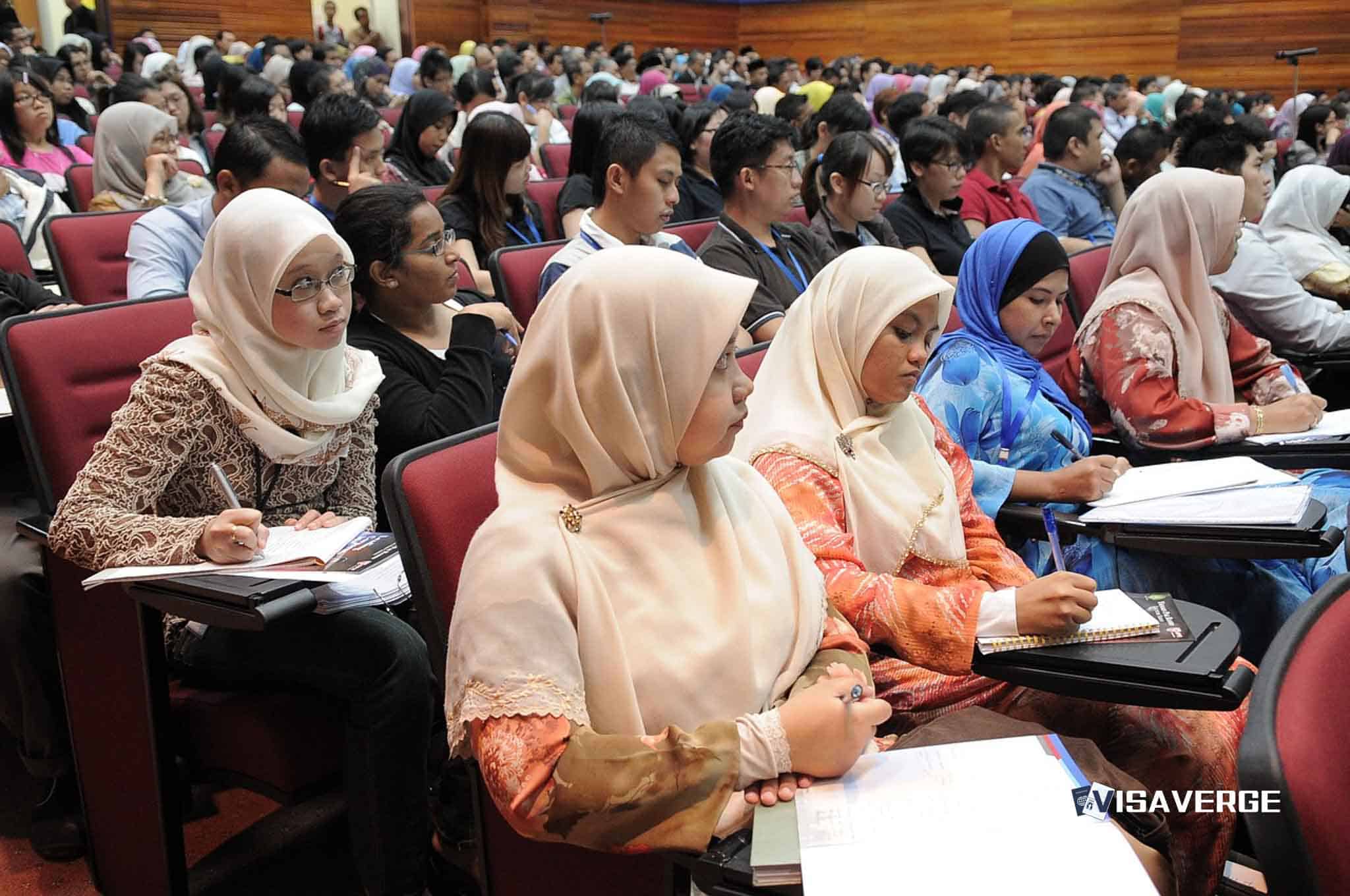The Home Secretary, Shabana Mahmood, will today set out what she calls the “biggest shake-up to the asylum system in modern times”, unveiling sweeping reforms designed to cut irregular arrivals, speed up deportations, and overhaul parts of human rights law that ministers say have allowed repeated legal challenges to removal.
The announcement on 17 November 2025 comes after asylum claims in the United Kingdom 🇬🇧 reached a record high, with around 111,000 applications in the year to June 2025. Officials say the system is under severe strain and argue that current rules, including those linked to European human rights protections, have made it difficult to remove people who have no right to stay.

Mahmood is expected to argue that the package marks a clear turn towards deterrence, while still offering what she will call “safe and legal routes” for people judged to be genuine refugees. She has framed the reforms as a response to public frustration over irregular Channel crossings and long waits for decisions, saying she wants to “restore order and control to our borders” and discourage dangerous journeys to the UK.
Key elements of the reform package
- Fast‑track deportations: a process aimed at reducing long delays between a refused claim and removal.
- Limits on repeat legal challenges: tightening appeal rights to prevent people remaining in the UK for years after courts have rejected their cases.
- Overhaul of human rights law: changes linked to the European Convention on Human Rights to restrict grounds for challenging deportation.
- Visa travel bans: sanctions on countries that refuse to cooperate with returns.
- Removing statutory duty to provide asylum‑seeker support: ending guaranteed housing and weekly payments introduced under EU law in 2005.
- Extension of time to permanent settlement for refugees: increasing the wait time before refugees can apply for settlement, potentially up to 20 years.
- New safe and legal routes: community sponsorship schemes similar to Homes for Ukraine.
- Changes to accommodation: moving people out of hotels into former military sites or other large‑scale housing.
Statistics and context
| Item | Figure / Detail |
|---|---|
| Asylum applications (year to June 2025) | ~111,000 |
| Announcement date | 17 November 2025 |
| Proposed wait for settlement | Up to 20 years |
Officials say the approach mirrors attempts in other European states to clear backlogs by tightening appeal rights and putting removals at the heart of asylum policy. Analysis by VisaVerge.com is cited as noting similarities with other European efforts.
Fast‑track deportations and limiting appeals
Central to the plan is a fast‑track process for deportations of people labelled illegal migrants, with the Home Office aiming to reduce long delays between a refused claim and removal from the country.
Ministers want to sharply limit repeat legal challenges that can keep people in the UK for years, even after courts have rejected their cases. While full legal detail is yet to be set out, officials say the aim is to end multiple appeals against removal and to prevent people from launching fresh claims at the last minute when flights are already booked.
Human rights law changes
The government will seek an overhaul of human rights law, including changes linked to the European Convention on Human Rights, in an effort to restrict the grounds on which deportations can be challenged.
- Aim: prevent last‑minute legal claims and multiple appeals.
- Uncertainty: full legal details have not yet been published.
This push on appeals goes hand in hand with measures to put pressure on foreign governments to accept returns.
Visa bans and international pressure
The Home Secretary plans to introduce visa travel bans on countries that refuse to cooperate with the UK in taking back nationals classed as illegal migrants. The UK model follows steps previously taken by the United States 🇺🇸, where visa restrictions have been used to try to force reluctant states to accept returns.
UK ministers argue that without credible consequences, some governments simply delay or decline to issue travel documents needed for deportation.
Changes to asylum‑seeker support
One of the most contentious elements is the decision to revoke the statutory legal duty to provide asylum‑seeker support (introduced under EU law in 2005).
- Current system: guaranteed housing and weekly payments for many people waiting on asylum decisions.
- Proposed change: asylum seekers may no longer be guaranteed accommodation or benefits, especially if:
- they are able to work and do not support themselves, or
- they break the law.
Critics warn this could push people into destitution; ministers say the aim is to remove perceived incentives to lodge weak claims.
Warning: Critics are likely to argue that removing guaranteed support will increase destitution and harm vulnerable people, while ministers stress deterrence and removing incentives for unfounded claims.
Settlement timeline for recognized refugees
The reforms would extend the wait time before refugees can apply for permanent settlement to up to 20 years, far longer than current rules.
- Government case: to make clear that long‑term settlement is not automatic and must be earned over many years.
- Critics’ case: long insecurity can harm integration, family life, and economic stability.
New safe and legal routes
Mahmood will announce new safe and legal routes for refugees, expected to include community sponsorship programmes akin to the Homes for Ukraine scheme.
- Goal: channel people fleeing persecution through organised pathways, reducing reliance on smugglers and dangerous Channel crossings.
Accommodation changes
Ministers plan to move asylum seekers out of hotels and into former military sites or other large‑scale accommodation.
- Reasoning: cut costs and address local anger about long‑term hotel use.
- Rights groups’ concern: institutional sites can isolate people and limit access to legal advice.
Comparisons with other countries
Mahmood has pointed to Denmark as a model, citing its strict asylum policies as evidence that tough rules can reduce incentives for irregular migration and increase deportations. Danish measures have included reduced benefits and a message that residence may be temporary for many.
Supporters say the UK plan echoes that philosophy: cuts to support, longer routes to settlement, and a strong focus on returns.
Political and legal reactions
Supporters in government describe the reforms as a necessary reset of an asylum system they say has become too slow, too generous, and too open to exploitation via repeated human rights appeals.
Rights advocates, lawyers, and refugee organisations are likely to challenge whether:
- rewriting human rights law, and
- reducing support,
fits with Britain’s commitments to protect people fleeing persecution. Revisiting obligations linked to the European Convention will raise questions about the UK’s role in the international legal order and potential conflicts with treaty promises.
Practical impacts on communities and individuals
Within communities hosting asylum seekers, the reforms will have immediate effects:
- People expecting basic support may struggle to secure stable housing, particularly if judged capable of work.
- Those granted refugee status could be forced to wait many more years before applying for permanent settlement, affecting:
- family reunion plans,
- decisions about careers and investment,
- long‑term integration.
Officials insist clearer rules and faster processing will reduce backlogs and yield quicker decisions over time. However, the short‑term outlook is likely to include legal challenges to the new measures themselves, particularly those limiting appeals and altering support duties.
Lawyers and rights groups will closely watch how courts balance border control with individual rights under domestic and international law.
Further information
Further official information about UK asylum processes is available on the UK government’s asylum guidance page, though today’s proposals would, if passed by Parliament, reshape key parts of that framework.
What Mahmood is setting out is not a minor adjustment but a broad attempt to recast who gets protection, who is removed, and what kind of life people can expect while they wait for a decision in the United Kingdom.
This Article in a Nutshell
On 17 November 2025 Home Secretary Shabana Mahmood unveiled major asylum reforms to reduce irregular Channel arrivals and speed deportations. Measures include fast-track removals, limits on repeat appeals, changes tied to the European Convention on Human Rights, visa bans on uncooperative states, ending guaranteed asylum support, and extending time before refugees can apply for settlement up to 20 years. The government promises new safe and legal community sponsorship routes; critics warn of increased destitution, legal challenges, and risks to protection safeguards.













